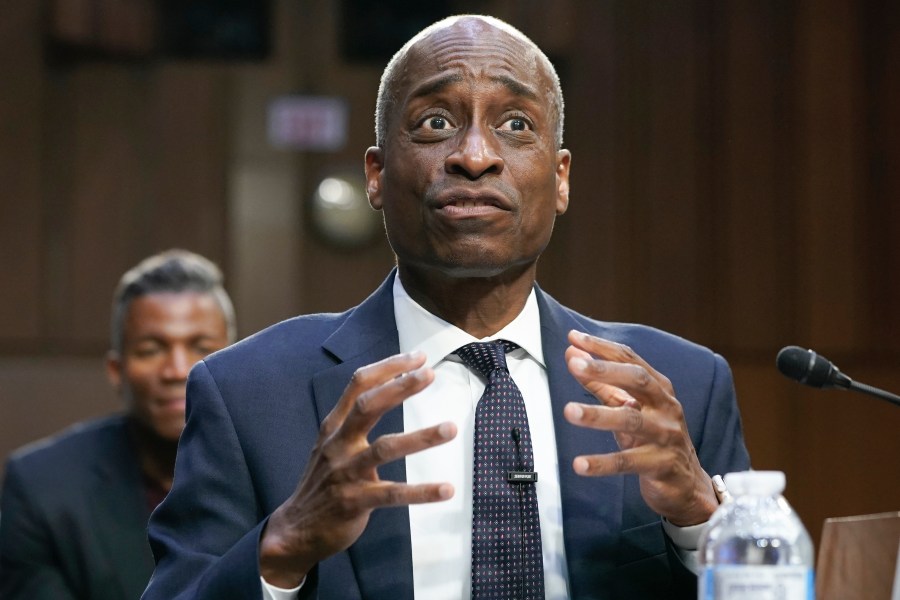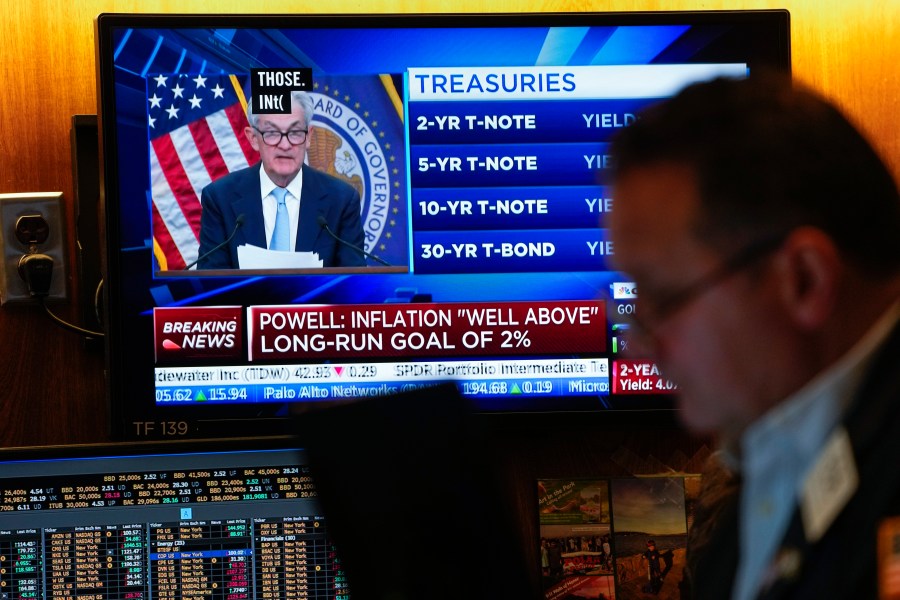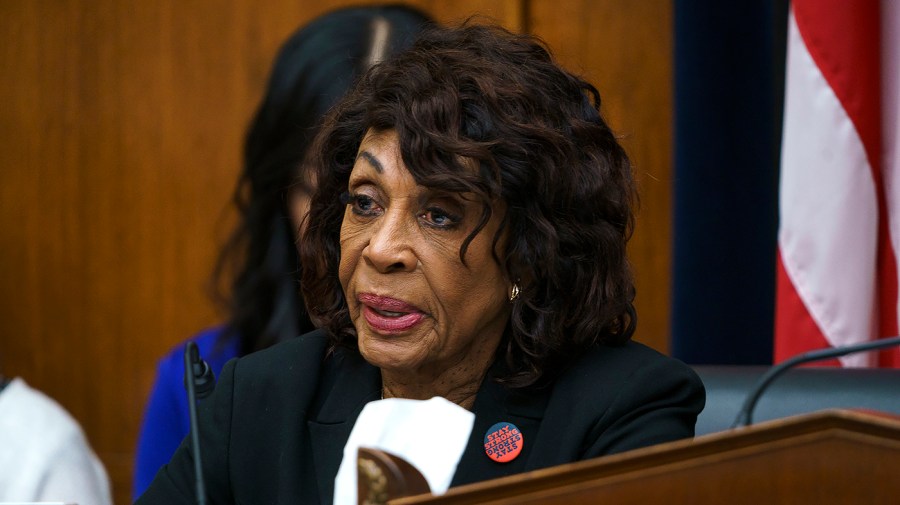Lawmakers push major banking reforms following near collapse of financial sector

Democrats are pushing to reform the deposit insurance system following massive bank failures that nearly tanked the economy earlier this year.
After the collapse of Silicon Valley Bank (SVB), Signature Bank and First Republic Bank, whose uninsured deposits all ended up being insured by the Federal Deposit Insurance Corporation (FDIC), Democrats are echoing the call of smaller banks, arguing that deposit insurance should apply to all U.S. deposits.
“The recent bank failures have reignited concerns regarding an implicit guarantee wherein only deposits at larger banks will reliably be safe in the event of a failure,” Rep. Maxine Waters (Calif.), top Democrat on the House Financial Services Committee, said Friday.
More to come: Banking crisis is over but its effects will last, Powell says
Waters endorsed a number of suggested reforms including “raising the $250,000 [account balance insurance] limit to a higher threshold, unlimited deposit insurance for everyone, and covering business payment accounts like the payroll accounts of start-up companies.”

The rise of ‘bailout culture’ raises questions
Financial regulators, who after the failures earlier this year bemoaned the U.S. financial sector’s “bailout culture” that “privatizes gains while socializing losses,” have been arguing for greater capital requirements on banks as part of an international banking framework.
FDIC Chairman Martin Gruenberg said that improvements in calculating capital requirements would have specifically addressed SVB’s botched handling of rising interest rates.
First Republic fallout: Democrats fume as regulators bail out yet another failed bank
The bank’s approach ultimately led to its collapse and put the entire financial system at risk.
“If [SVB’s] unrealized losses had been required to flow through to capital, the bank would have been required to hold more capital against those assets, and that would have meant that the capital hit on the institution would have been … easier to absorb,” Gruenberg said at an event Thursday.
Some GOP voices join chorus for reform
Since the bank failures in March, some Republicans have also signaled support for the idea of extending deposit insurance across the banking industry, including Financial Services Committee member Blaine Luetkemeyer (R-Mo.).
Luetkemeyer said in March a blanket insurance policy would help prevent cash outflows from smaller banks to bigger banks.
Many larger banks were effectively state-backed following the global financial crisis of 2007 and 2008.
Who is responsible? Regulators to blame in part for SVB, Signature Bank failures, federal watchdog says
But other Republicans have pushed back, including Financial Services Committee Chairman Patrick McHenry (N.C.), who received donations from and was even reportedly thrown a fundraiser by Signature Bank less than two weeks before its collapse.
His committee passed much more limited legislation focused on regulatory actions specifically during “crises” last month.
Republican committee aides told The Hill that the bill would “ensure banking regulators are acting within the authorities provided by Congress by bolstering accountability and transparency at the agencies, especially in the event they invoke emergency powers.”

Pushback against reform gaining traction
Critics say the bill actually further deregulates the banking business by allowing any bank or financial company on the high-powered Financial Stability Oversight Council’s (FSOC) list of “systemically important” institutions to lobby Congress to be removed.
“This would render the FSOC designation authority under the Dodd-Frank Act futile and unnecessarily politicize the agency’s efforts to monitor companies that pose an outsized risk to our financial system,” Americans for Financial Reform, an organization that advocates for tougher banking rules, wrote in an analysis.
“This bill comes at the heels of the FSOC’s announcement to reinvigorate its designation process, a welcome step in preventing the next financial crisis,” it wrote.
Speaking at a conference of the American Bankers Association trade group in March, McHenry expressed doubt that a new banking law was the right answer.
McHenry has sounded notes of agreement with both FDIC regulators and Democrats.
“What we have to do is address over a period of time, the safety and stability of smaller banks, at a time where the market is judging their business model, their interest rate sensitivity, and the assumption that regulators are going to require a lot more capital for these banks to exist,” he said last month.
A free market no more? Rules of the game have changed after banking crisis, some say
He also concurred with FDIC Chair Gruenberg that mismanaged interest rate exposure was the reason for SVB’s collapse.
“If we look at the reason why these banks — the three of the 30 largest banks in America — have failed in the last two months, it’s because of interest rate sensitivity of their balance sheet. Which means they misjudged inflation,” he said in May.
Experts weigh in on regulating banks like utilities
Economists say that extending deposit insurance to all U.S. depositors would be like regulating the banking system in the same way as water and electricity providers.
“The only way that [extending deposit insurance to everyone] would possibly make sense is if banks became regulated like public utilities,” Dartmouth University economist Andrew Levin told The Hill.
That would likely mean that banks could no longer take advantage of the huge spreads between the interest rates they provide to customers and the interest rates they pay to each other.
The average savings account now pays 0.25 percent in annual interest while the federal funds rate is now more than 5 percent.
But a more practicable idea, Levin says, for stabilizing and ensuring the financial system would be to allow groups of small businesses and consumers to bank directly with the Federal Reserve.
They could do that using digital wallets in the same way that big banks and other types of big money funds already do through the Fed’s reserve system and reverse repo facility.
Such a system has perhaps extra appeal when banks run like the one that crippled SVB are fast-tracked by social media and digital interconnectedness.
Criticism mounts: House lawmakers roast regulators over failed banks
“Ordinary families and small businesses should be able to have a transaction account,” he said in an interview. “It would be perfectly safe, secure, easy to use, and effectively free. So don’t just do that for the money market funds and the pension funds and insurance companies, make it available to everyone.”

Is banking directly with the Fed a workable plan?
Even more direct proposals are out there, whereby small businesses and consumers would bank directly with the Fed as opposed to through third parties like business consortiums and credit unions.
One such plan by Cornell University law professor Robert Hockett envisions a “publicly administered digital savings and payments platform,” which Hockett describes as “an essential public utility.”
The system would use “phone-accessible digital wallet capability [and] enable direct peer-to-peer transacting in ‘real time’ … among all wallet holders.”
A similar system is already being built in China, which the Center for Strategic and International Studies, a U.S. think tank, describes as “further ahead in digital currency research than any other major economy.”
Dartmouth’s Levin said privacy concerns would likely make an exact analogue a legal nonstarter in the U.S., but initial research into the technical feasibility of digital wallets from the Federal Reserve Bank of Boston and the Massachusetts Institute of Technology was already completed last year.
“Central banks, researchers, and policymakers have proposed various objectives including fostering financial inclusion, improving efficiency in payments, prompting innovation in financial services, maintaining financial stability, and promoting privacy,” the researchers noted in a white paper published last year.
They cautioned that their work was not yet “intended for a pilot or public launch.”
Copyright 2023 Nexstar Media Inc. All rights reserved. This material may not be published, broadcast, rewritten, or redistributed. Regular the hill posts







